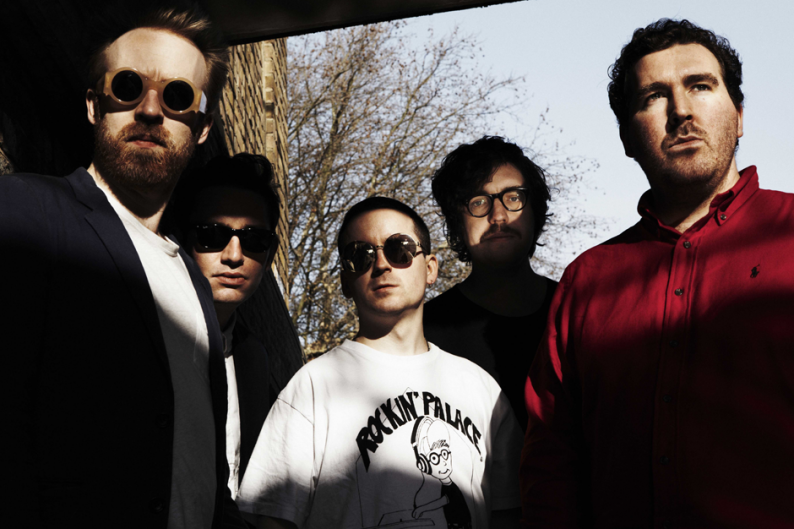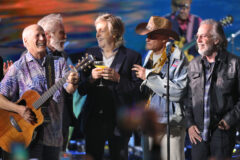Hot Chip’s talent lies in distilling dance music bliss into compact, bittersweet pop songs. The Londoners’ fifth LP, In Our Heads, contains the electro ensemble’s most mature and ambitious jams, but maintains the group’s trademark levity. Alexis Taylor’s kinda-rap during the breakdown of lead single “Night and Day” assures us that Hot Chip is still down to get a little goofy (as does the song’s Mr. T reference). Augmented by touring drummer Sarah Jones (of New Young Pony Club), Hot Chip is set to vault across the pond and back, playing shows all summer and into the fall. Before that, though, guitarist Al Doyle took the time to share some of the touchstones for the new record.
Obscure Records
“Brian Eno’s label he ran in the ’70s was called Obscure Records. I think he got money to set up his own label, and then just did this really experimental set of releases. Alexis is really into a lot of experimental and improvisational music. We’ve sort of always had that side to us, and it’s nice to be able to try and get away with some more kinds of experimental techniques within the context of the pop music that we’re making. It’s kind of constraining in some ways I guess to be involved in this kind of project, ’cause, yeah, we want it to be out and out pop music and for it not to be so difficult.”
Disco Edits
“In the ’80s and early ’90s people start to release pop records that would have something on the flip side. A disco edit or something like that. It wouldn’t be anything complicated. It would just be literally repeating things a little bit and making it sound a little bit more ready for the dance floor. Sort of like [Chicago House DJ] Ron Hardy’s edits, that kind of stuff. That was a broad influence on the record: to make these tracks a little bit more indulgent in the intros and outro — just see how far you could push something without overstaying its welcome.”
Mr. T
“There was a little novelty Mr. T key ring that was left in the studio. The kind of thing that you had on your key ring if you were a Mr. T fan, obviously, or maybe it came in a cereal box. It had all of his catch phrases on it. It had the ‘quit your jibber jabber’ line on it that appears in [In Our Heads’] ‘Night and Day.’ That was a real sort of rote lyric writing exercise on Alexis’ part I think. It got annoying very very fast, and now the battery is gone on it because we pressed it too much.”
Nathan Fake and Kris Wadsworth
“A specific influence on the track Flutes’ is a song by [English electronic artist] Nathan Fake called ‘The Sky Was Pink.’ The chord progressions in that song I think were very influential because it takes ages for the chords to come around again — 25 measures or something for the whole sequence to begin again. [Producer-DJ] Kris Wadsworth is not really a guy who does edits, but he’s a new sort of Detroit-y guy. He’s doing a sort of quite hard sounding, quite dark dance music. ‘Flutes’ doesn’t sound particularly Detroit-y, but it’s got that sort of expansiveness to it that I think he’s doing really well at the moment.
Paul McCartney’s 1980 album McCartney II
[The new album’s] ‘Now There Is Nothing’ is a sort of homage to records on McCartney II. Quite deliberately quirky time signature changes and key changes and these sort of very wandering harmonies — very typical of that period and McCartney productions.
Jack White
“Jack White’s got a backing band of girls and a band of boys. Can you imagine? All of his management and everybody around must have said, ‘dude, this is insane,’ because the single most expensive thing you can do is add a person to a tour. He decides he’s going to add like six people. I just have a lot of respect for that. We could do a show with basically five of us, a backing track, and a few other bits and bobs, and we’d be able to make a shitload more money on the road. At the moment, this show we’re running is seven people and an avalanche of gear. It’s quite validating for me to make those decisions on the basis of what you want to do musically rather than what makes financial sense.”





